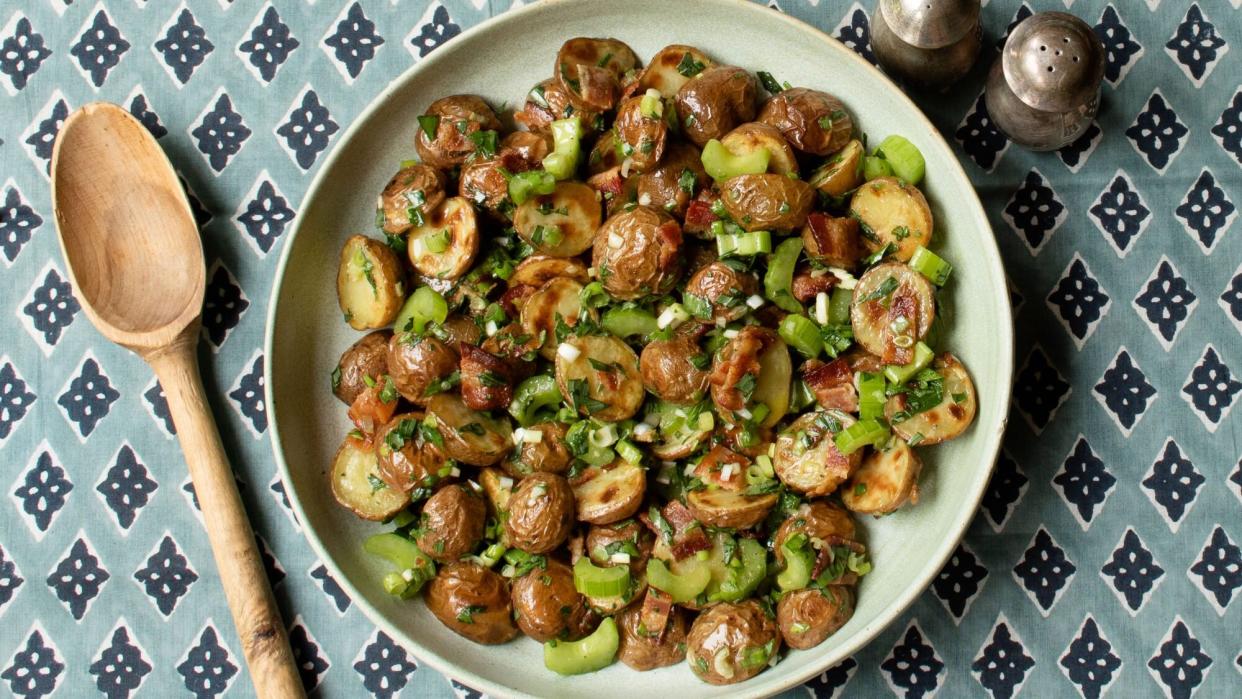Should You Microwave Vegetables Before Roasting Them?

Joy Howard
We appreciate that roasting is a delicious way to prepare all sorts of vegetables year-round. Roasting intensifies and concentrates their flavors while preserving their texture and protecting their nutrients. It's a quick process for delicate vegetables, such as sliced peppers and onions, but can take considerably longer for denser vegetables, such as chunks of potatoes and winter squash.
It's tempting to jack up the oven temp to speed up the cooking time, but that can backfire. Roasting vegetables at temperatures higher than 400 degrees Fahrenheit can overcook the outside of the pieces before the insides get done.
A better shortcut is to partially cook dense vegetables in the microwave before finishing them in the oven. This technique can also save the day when you want to roast a medley of vegetables together even though they have a range of cooking times.
Think of the microwave as a large steamer that can begin to cook and soften dense vegetables without turning them so soggy that they can't roast nicely.
Recipe Picture Above: Roasted Potato Salad
How to Cook Vegetables in the Microwave so They Roast Better in the Oven
Here's how it works:
Cut the vegetables into pieces of roughly the same size and shape. This will encourage them to cook at the same rate, even when they have different textures and densities.
Transfer the cut vegetables into a microwave-safe container. Add 1 tablespoon of water, and cover tightly to hold in the steam. (A piece of plastic wrap wrapped tightly over the bowl might be the best bet here.)
Microwave the vegetables only until they are partially cooked. You should be able to pierce them with the tip of a knife, but the knife shouldn't slip all the way through. The goal is to jump start the cooking process, not to cook the vegetables to the point that they won't have time to take on the delicious roasted flavor in the oven.
Drain the vegetables and blot them dry before transferring them to the roasting pan and continuing with your recipe. This way, the clinging water won't wash away the oil and seasoning needed for a flavorful roast.
Microwaving is also a good technique to use when you want to roast a medley of firm vegetables alongside delicate vegetables so that everything gets done at the same time. If the chunks of vegetables are too hard to squeeze or bend (think potatoes, sweet potatoes, parsnips, carrots, winter squash), they'll benefit from microwaving before mixing them more tender items, such onions, peppers, garlic, asparagus, green beans, Brussel sprouts, herb sprigs, and so forth.
The goal is to wind up with a medley that can roast together in one pan at the same time, so let each vegetable's density be the guide, and work in batches of similar vegetables as needed.
By the way, these same ideas and guidelines apply to vegetables for the grill. It's almost impossible to fully cook dense vegetables on the grill without overcooking or charring the outside during the time needed to turn them tender.